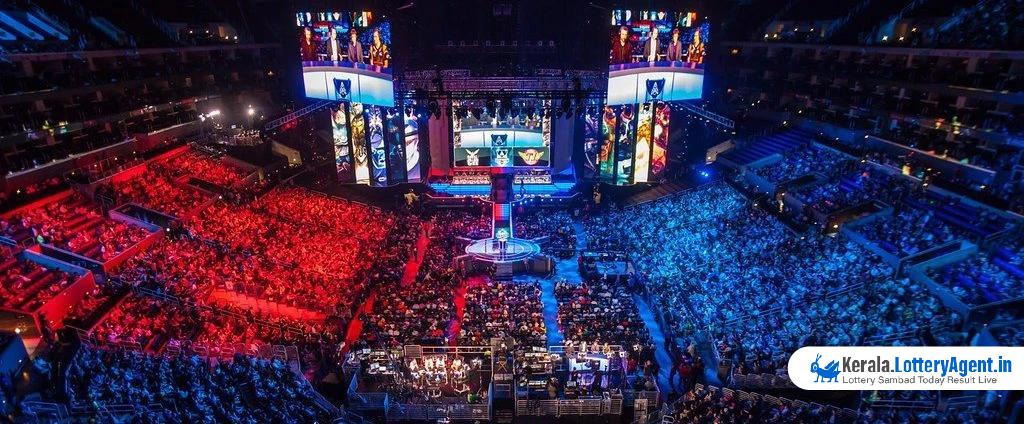
“I think esports is already the second biggest sport in terms of popularity,” asserts Udo Seckelmann of Bichara e Motta Advogados. Reflecting on the views and interests of younger generations, Seckelmann notes a significant shift. “Not in terms of betting, but in terms of younger generations viewing esports more positively than they do other sports, including football. Maybe in the next ten years, it surpasses football.”
In a nation where football, often regarded as “o jogo bonito,” reigns supreme, such a prospect might seem audacious. Nevertheless, Seckelmann’s firm, Bichara e Motta Advogados, has a client roster brimming with prominent athletes from diverse sports like surfing, skateboarding, and football. Recently, however, there has been a notable uptick in the representation of esports players. Adding to this surge is the increasing interest from betting operators, looking to capitalize on the burgeoning esports scene.
Leo de Biase, a seasoned professional in esports with over 25 years of experience, highlights the vast audience captive in this rapidly growing field. “Portuguese is a language nobody speaks,” he jokes. Yet, due to esports’ soaring popularity in Brazil, it has become the second most prevalent language on the streaming platform Twitch, trailing only English.
De Biase’s extensive career in gaming and esports includes significant stints at Nvidia and monumental efforts to attract some of the world’s premier esports leagues to Brazil. Mirroring Seckelmann’s sentiment, he asserts that esports has cemented itself in the mainstream. However, De Biase also points out that while betting sponsorship provides essential funding, it pales in comparison to traditional sports. For instance, while advertisements during a Serie A football match can fetch up to BRL300 million, targeting an audience of five to eight million, sponsorships for a Free Fire tournament, which attracts double that viewership, max out at about BRL15 million.
When it comes to betting, Brazil’s young and avid population adds a unique dimension, as noted by Marek Suchar, co-founder of esports betting specialist Oddin. However, he points out a significant challenge: “The average bet size is less than half of what you would find in North America.” This aspect highlights the limited spending power within this demographic. Brazil’s lack of a legal gambling history and the fact that betting has been legal – though unregulated – only since 2018, compound the issue. Suchar emphasizes that this nascent market has seen some take advantage of delayed streams and weak odds to profit.
.
Seckelmann adds that, while regulations coming into effect from January 1 do not specifically address esports, there’s a general consensus that esports should be recognized as a sport – an idea even supported by Brazil’s Ministry of Sports. However, he admits this is an ongoing debate that has yet to be fully resolved.
Addressing the esports landscape in Brazil, De Biase identifies Free Fire as the dominant title, describing it as “the game of the people.” This game leads in popularity by a significant margin but has not yet achieved key betting status. Other popular titles include Counter-Strike (CS), League of Legends, and Ubisoft’s Rainbow Six and Valorant. Data from Loadout Esports & Gaming, shared with iGB, indicates a strong affinity for CS, with 7% of the Latin American region watching this title, solidifying its status as one of the key betting titles in esports.
Suchar suggests that simulation games, especially efootball, have enormous potential in Brazil, indicating that the esports audience’s passion for football remains vibrant. Loadout’s data underscores this, showing a substantial crossover between football and esports viewers. A survey conducted with 1,000 esports enthusiasts revealed that 95% also watched football, a higher crossover rate than that seen between esports and the NFL in the US.
While football remains Brazil’s unrivaled sport, there is no clear second favorite. Basketball and volleyball garner some interest, and an American football game in Sao Paulo hints at the NFL’s attempts to engage a new fanbase.
Seckelmann reiterates that esports has emerged as the country’s second biggest sport. With football sponsorship nearing saturation, major brands are shifting their focus from club deals to league branding, prompting speculation about where to invest next.
Loadout surveys reveal that 38% of regular esports viewers engage in betting on esports competitions. “I think everyone will jump in,” predicts de Biase. He foresees increased financial influx into the industry but warns about the necessity of controlling sponsorship to maintain integrity.
De Biase concludes, “It’s much-needed money since traditional brands aren’t investing millions into esports. I was more concerned about federations and confederations, but betting and igaming are very supportive. We need that kind of encouragement for our ecosystem.”












